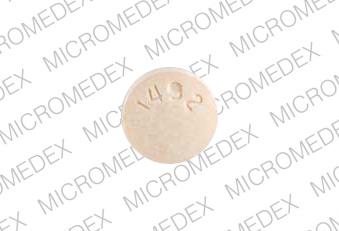Monopril HCT Interactions
There are 614 drugs known to interact with Monopril HCT (fosinopril/hydrochlorothiazide), along with 19 disease interactions, and 3 alcohol/food interactions. Of the total drug interactions, 54 are major, 504 are moderate, and 56 are minor.
- View all 614 medications that may interact with Monopril HCT
- View Monopril HCT alcohol/food interactions (3)
- View Monopril HCT disease interactions (19)
Most frequently checked interactions
View interaction reports for Monopril HCT (fosinopril / hydrochlorothiazide) and the medicines listed below.
- Advair Diskus (fluticasone / salmeterol)
- Allegra (fexofenadine)
- amlodipine
- aspirin
- bisoprolol
- CoQ10 (ubiquinone)
- Coreg (carvedilol)
- Crestor (rosuvastatin)
- cyclobenzaprine
- Cymbalta (duloxetine)
- diclofenac
- Dulcolax Stool Softener (docusate)
- furosemide
- gemfibrozil
- glipizide
- Inderal (propranolol)
- Kadian (morphine)
- Lasix (furosemide)
- levothyroxine
- Lexapro (escitalopram)
- Lipitor (atorvastatin)
- Lopressor (metoprolol)
- Lortab (acetaminophen / hydrocodone)
- Lyrica (pregabalin)
- metformin
- metoprolol
- Monopril (fosinopril)
- Neurontin (gabapentin)
- simvastatin
- Xanax (alprazolam)
Monopril HCT alcohol/food interactions
There are 3 alcohol/food interactions with Monopril HCT (fosinopril / hydrochlorothiazide).
Monopril HCT disease interactions
There are 19 disease interactions with Monopril HCT (fosinopril / hydrochlorothiazide) which include:
- angioedema
- bone marrow suppression
- hemodialysis
- hyperkalemia
- hypotension
- anuria
- electrolyte losses
- liver disease
- lupus erythematosus
- renal function disorders
- liver disease
- renal dysfunction
- liver impairment
- asthma
- diabetes
- hyperlipidemia
- hyperparathyroidism
- hyperuricemia
- thyroid function tests
More about Monopril HCT (fosinopril / hydrochlorothiazide)
- Monopril HCT consumer information
- Compare alternatives
- Drug images
- Side effects
- Dosage information
- During pregnancy
- Drug class: ACE inhibitors with thiazides
Related treatment guides
Drug Interaction Classification
| Highly clinically significant. Avoid combinations; the risk of the interaction outweighs the benefit. | |
| Moderately clinically significant. Usually avoid combinations; use it only under special circumstances. | |
| Minimally clinically significant. Minimize risk; assess risk and consider an alternative drug, take steps to circumvent the interaction risk and/or institute a monitoring plan. | |
| No interaction information available. |
See also:
Further information
Always consult your healthcare provider to ensure the information displayed on this page applies to your personal circumstances.


